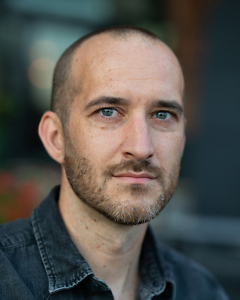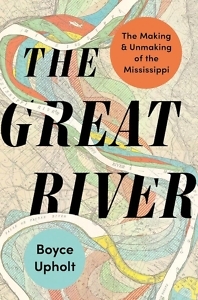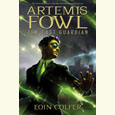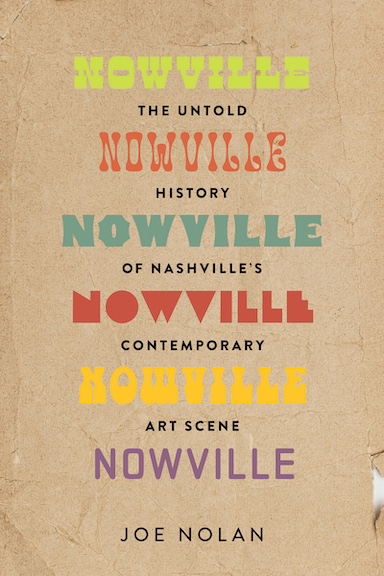River Gods
Boyce Upholt explores the long history of the Mississippi River
“The Mississippi River will always have its own way,” wrote Mark Twain. “No engineering skill can persuade it to do otherwise; it has always torn down the petty basketwork of the engineers and poured its giant floods withersoever it chose, and it will continue to do this.” In The Great River, Boyce Upholt dives into the river’s past, present, and future, exploring the struggle that Twain articulates. Can humans tame nature? Should they?

Upholt won the 2019 James Beard Award for investigative journalism, and his work has been published in popular magazines, including The Atlantic, National Geographic, and Oxford American. The Great River is his first book. He answered questions via email from Chapter 16:
Chapter 16: Your book tells a continuing story of the U.S. government’s efforts to manage the Mississippi River, employing levees, jetties, dikes, and dams. How did it seek to accomplish this? What have been its effects?
Boyce Upholt: The general idea was to control where, when, and how the water moves. Levees act like walls, separating the spaces where we tolerate floods from spaces where we don’t. Dikes and dams and jetties control the speed and direction of the water — both to create a channel that boats can navigate and to move the water along so that it doesn’t linger as a flood.
The ecological impacts are very obvious. For much of the nonhuman world, the behaviors that the engineers considered bugs were actually features. So a lot of the biological richness of the river has been lost.
But it also turns out that it’s hard to wrap our heads around the complexity of a system like the Mississippi watershed, and often by solving one problem, we cause another — pushing floods onto someone else, destroying landscapes that we didn’t even know we depended on.
Chapter 16: The Great River is a work of not only history, but also journalism. How did your personal experiences shape your understanding of the river and its people?
Upholt: The whole book began because, for a magazine assignment, I went canoeing and camping on the river. I had been living in rural Mississippi for six years at that point, and, because of the levee, I didn’t know what the river was like. You can’t see it. And you hear all these stories about pollution and over-engineering, but it’s still stunningly beautiful.
This is just my way, I guess. To really understand anything, I’ve found I have to go out and touch it. I need to travel through the landscape; I need to talk to people, especially people who see differently than me, to test and reassess my conclusions.
Chapter 16: You write that the history of the Mississippi River should compel us to rethink our assumptions about “civilization.” Before contact with Europeans, how did Native Americans understand and use the river?
 Upholt: As I understand it, Indigenous people didn’t see the need to tame the river. People here were still hunting and fishing when agriculture first swept across the continent. In a lot of Western culture, hunting and gathering cultures are seen as not yet having reached civilization. But I don’t think the Mississippi was considered backward. Some of the continent’s most impressive spiritual architecture was built here, in the form of mounds. And Indigenous cultures as far away as the Great Plains have stories that treat the river’s mouth as an almost sacred space of abundance. The nonhuman world was not something to exploit, but something to be treated with respect. That respect had to include wariness because the river was unruly. But people seemed to decide that the best way to survive in a place so chaotic was to try to take care of everyone — human and nonhuman!
Upholt: As I understand it, Indigenous people didn’t see the need to tame the river. People here were still hunting and fishing when agriculture first swept across the continent. In a lot of Western culture, hunting and gathering cultures are seen as not yet having reached civilization. But I don’t think the Mississippi was considered backward. Some of the continent’s most impressive spiritual architecture was built here, in the form of mounds. And Indigenous cultures as far away as the Great Plains have stories that treat the river’s mouth as an almost sacred space of abundance. The nonhuman world was not something to exploit, but something to be treated with respect. That respect had to include wariness because the river was unruly. But people seemed to decide that the best way to survive in a place so chaotic was to try to take care of everyone — human and nonhuman!
And we don’t have to stick to the past tense here. There are still Indigenous people along the river, and I think the rest of us ought to be listening to what wisdom has been passed down over thousands of years!
Chapter 16: After the Louisiana Purchase of 1803, Thomas Jefferson envisioned the Mississippi Valley as an “empire for liberty.” What did he mean? Over the course of the 19th century, how was this land a site of freedom? How was it one of repression?
Upholt: The “empire for liberty” was supposed to be an empire of independent farmers: people living on their own plots of land, taking care of their own needs. That was Jefferson’s ideal of liberty. By the end of the 19th century, as the river was tamed, the floodplain did wind up becoming a giant expanse of farmland. And I’ve met many farmers who feel like they are embodying Jefferson’s old ideal. But I think their significant dependence on the government — for flood control, for crop subsidies — undercuts their claims of being so virtuously free.
The first farmers were also dependent on people who weren’t free at all. The land was so difficult, most of the first farmers used enslaved labor to hack through the forests. For decades after Emancipation, these farms depended on keeping workers trapped in exploitative conditions. And, of course, to even get the land they needed to drive out the original Indigenous inhabitants.
The land that remained untamed, though, offered a different flavor of freedom. Runaway slaves and Indigenous people who did not want to leave the Southeast set up communities in the swamps and marshes that white farmers overlooked.
Chapter 16: The U S. government’s engineering programs on the Mississippi have driven economic growth. In 2019, U.S. rivers carried $134 billion in cargo, leading to millions of jobs. How would an environmental critic respond to this argument?
Upholt: Well, obviously all those levees and dams have reworked the river in ways that have impacted many species, fish especially! The big question is how to compare what is lost with what is gained. I think it’s important to pay attention to what cargo is shipped on the river. Fossil fuels make up more than half the load! And a lot of the rest are commodity grains, which are grown on farms whose use of fertilizers and pesticides have major ecological impacts, and which are mostly shipped abroad or rendered into non-food products. The navigation industry in its current form is mostly serving other industries that need to be majorly reworked. So, yes, let’s keep the economy going — but let’s make it an economy that serves the planet, too.
Chapter 16: “If my time on the river has convinced me of one thing,” you conclude, “it’s that we do not make very good gods. The river is the true god here — an unappeasable god.” If that is the case, what should we do? What policies should we follow? What is the best future for the Mississippi River?
Upholt: There’s no easy path forward. You can’t just pull out the levees without destroying cities, communities — lives. So we’re going to have to inch our way forward. I’m more comfortable offering cultural prescriptions than policy proposals: I think there is a lot of wisdom in the approach that thrived for thousands of years before Europeans arrived.
One problem with the Jeffersonian empire of liberty is that it tries to split a watershed into a thousand little pieces. But everything in the watershed is very literally connected. I hope our policies can begin to emphasize that sense of connection and care.

Aram Goudsouzian is the Bizot Family Professor of History at the University of Memphis. His most recent book is The Men and the Moment: The Election of 1968 and the Rise of Partisan Politics in America.





